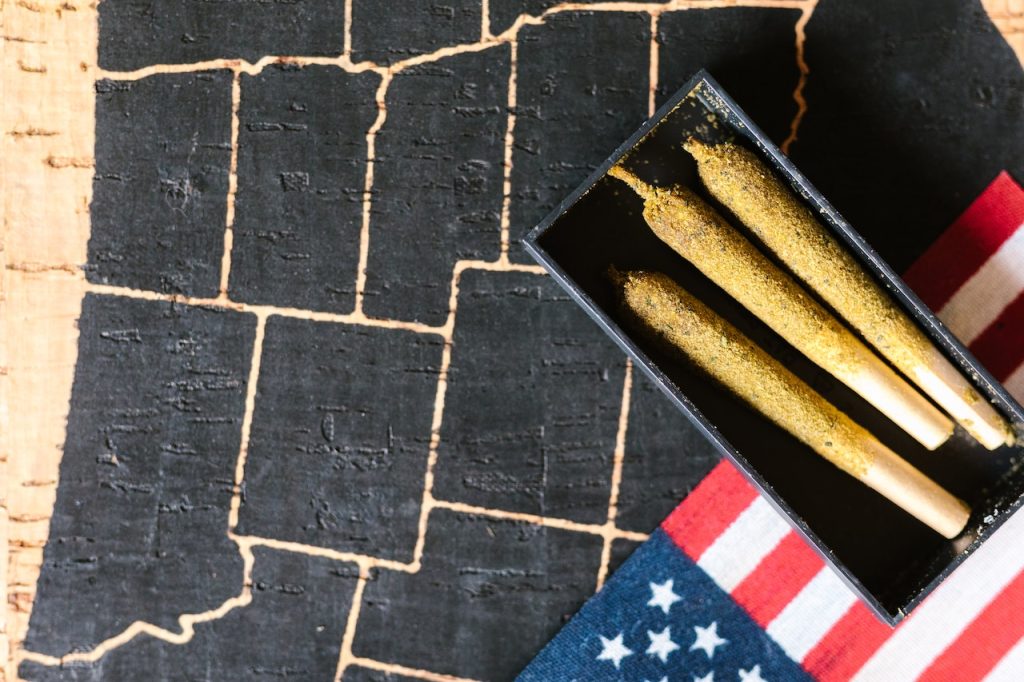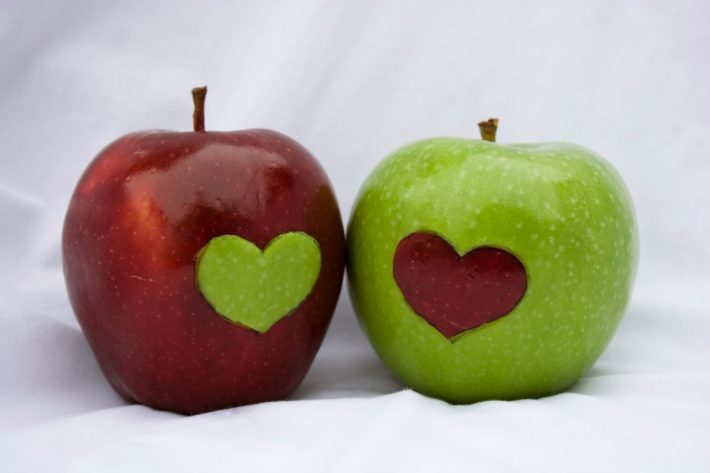Delta 8 vs Delta 9 are not even like comparing apples and oranges. It’s more like a red apple versus a green apple, a mackintosh and a granny smith.
When you look at the molecular makeup of D8 and D9, you’ll see a lot of similarity between the two, as they’re almost identical. What’s most important is the placement of a key double bond. Delta 9 has this double bond on the 9th carbon atom in it’s structure, while Delta 8 has it on – you guessed it – the 8th. Because of the way federal law is written, the main practical difference is that one can be found for sale in your local store, and the other could land you in a correctional facility.
Delta 8 THC vs Delta 9: Understanding the Key Differences
When it comes to cannabis products, Delta 8 THC and Delta 9 THC are two of the most talked-about cannabinoids. While both compounds share some similarities, understanding the differences between Delta 8 THC and Delta 9 is crucial for anyone looking to explore their effects and benefits.
What is Delta 8 THC?
Delta 8 THC is a cannabinoid found in the cannabis plant, but it is chemically similar to Delta 9 THC. It is considered a less potent version of Delta 9, offering a milder, more manageable high. Many users report feeling relaxed, clear-headed, and less anxious with Delta 8 compared to the stronger effects of Delta 9.
What is Delta 9 THC?
Delta 9 THC is the most well-known and widely studied form of THC. It is the compound responsible for the psychoactive effects commonly associated with cannabis use. Delta 9 is potent and can lead to intense euphoria, but it may also cause unwanted side effects like anxiety or paranoia in some users.
Delta 8 THC and Delta 9: Key Differences
The primary difference between Delta 8 THC and Delta 9 THC lies in their chemical structure. While both compounds bind to the same receptors in the brain, Delta 8 has a slightly different molecular structure, which contributes to its less intense effects.
- Potency: Delta 8 THC is less potent than Delta 9 THC, which makes it an appealing option for people looking for a lighter, less overwhelming experience.
- Effects: Delta 8 is known for its smoother and milder effects, while Delta 9 can produce stronger psychoactive experiences.
- Legality: Delta 8 is federally legal in many areas, as it is derived from hemp, whereas Delta 9 THC remains illegal in some states.
Which One is Right for You?
The choice between Delta 8 thc vs Delta 9 comes down to personal preference. If you’re new to cannabis or want a more controlled experience, Delta 8 THC might be the right option. On the other hand, if you seek a more potent, traditional cannabis experience, Delta 9 may be your best bet.
What makes Delta 8 legal when Delta 9 Isn’t?
While both cannabinoids are present in hemp and marijuana, Delta 8 THC is legal in some states, and Delta 9 is not. So, what’s the difference? To answer those, let’s dig into it.
There is no denying that Delta 8 is very popular, and it’s still growing. The 2018 Farm bill signed by former President Donald Trump changed the list of Schedule I illegal drugs by qualifying the difference between hemp and marijuana. Crucially, hemp and cannabinoids derived from it were considered federally legal if they contained no more than 0.3% of Delta-9 THC on a dry-weight basis. Because the law didn’t specify ALL THCs, just Delta 9, it paved the way for products like Delta 8 to become legal in some states. Lawsuits are still being fought, but that hasn’t stopped D8 from rising to the top of the market.

How do they work? What makes Delta 8 so special?
Delta 8 and Delta 9 both interact with our bodies at crucial chemical receptors. Primarily, these receptors are located in the brain, whereas CBD interacts with ones elsewhere in the body. Delta 9 however, is considered a “more potent” or “intense” experience than Delta 8, broadly speaking. You might wonder how that’s a benefit – read on to find out!
Many people prefer Delta-8 over other products because of its exceptional relaxing properties. Whether or not you enjoy the “high” of delta 9, delta 8 is generally less intense in comparison, and may be considered a more comfortable experience. As such, people are drawn to Delta 8 as a way to kick back and unwind.

Many people opt for CBD products instead of marijuana or weed because CBD products contain low amounts of THC. For folks who want the health-supporting benefits of hemp without the high, CBD is the way to go.
Broadly speaking, because of the location of the double bond in Delta 8, it has a harder time binding to certain chemical receptors in the brain and body. Less bonding usually means less interaction – and potentially a less intense experience than Delta 9.
As a cannabinoid, Delta 8 is thought to interact with the natural Endocannabinoid System in our bodies. This system, called the ECS, supports a lot of our health and wellbeing. It can help regulate functions like mood, digestion, sleep, and recovery. By interacting with essential hormones like dopamine and serotonin in your body through the ECS, Delta 8 might offer natural support similar to CBD – though this is yet to be proven.
Although Delta-8 and most other CBD products have similar effects, they also have some notable differences. Notably, CBD bonds with different chemical receptors, and won’t get you high. Furthermore, CBD is far and away more available than Delta 8 is across the country.

However, there is a significant reason why many people now prefer Delta 8 thc vs Delta 9; it is that Delta-8 products are increasingly more trusted because of their relative ‘safety”. This safety comes from having a product made according to broader manufacturing standards that apply to hemp. Without certain standards, even on a state-by-state basis, these products would become much less trustworthy. With independent lab testing becoming more common in the industry, it’s easier for consumers to trust the product they’re purchasing. No brand wants to be associated with a poor-quality product, after all.
Final Thoughts
The Food and Drug Administration wants you to know that the FDA has not approved Delta 8 for any form of safe use. Delta 8 products are not intended to diagnose, treat, cure, or prevent any disease. As a THC cannabinoid, it’s possible that Delta 8 will show up on a drug test. Despite this, the future is brighter than ever for hemp-derived cannabinoids.
Delta-8 is one of the most popular hemp-derived products, and we have seen ample reasons. From legal acceptance on the rise to a smoother experience, it’s clear Delta 8’s popularity is here to stay. If you’re curious, check out our new arrivals section here at Sun State Hemp today!
Legal Disclaimer:
The content provided in this blog post is for informational purposes only and is not intended as medical advice. Always consult with a licensed healthcare provider before using any CBD or hemp-derived products, especially if you are pregnant, breastfeeding, or have any medical conditions.
Sun State Hemp makes no representations or warranties regarding the accuracy, completeness, or applicability of any information on this website. All content is intended solely for general knowledge and educational purposes. You should always consult with a qualified healthcare professional before making any decisions regarding the use of hemp, cannabinoids, or other related products.
By using this website, you agree that Sun State Hemp is not responsible for any adverse effects, damages, or legal issues that may arise from the use or interpretation of the information provided. You further agree to hold Sun State Hemp harmless from any claims, actions, or lawsuits related to the content on this website.
The use of hemp and related products may not be appropriate for everyone, and its legal status varies by location. It is your responsibility to comply with local laws and regulations.
Sun State Hemp does not assume any liability for any injury, harm, or legal consequences arising from the use of any products mentioned on this site. Always seek professional advice and make informed decisions based on your specific needs and circumstances.
Proudly Made in the USA.
This product contains less than 0.3% THC and is derived from hemp stalk. The Food and Drug Administration (FDA) has not evaluated this statement. This product is not intended to diagnose, treat, cure, or prevent any disease. Pregnant or breastfeeding women should not use this product, as its use may pose potential risks.



